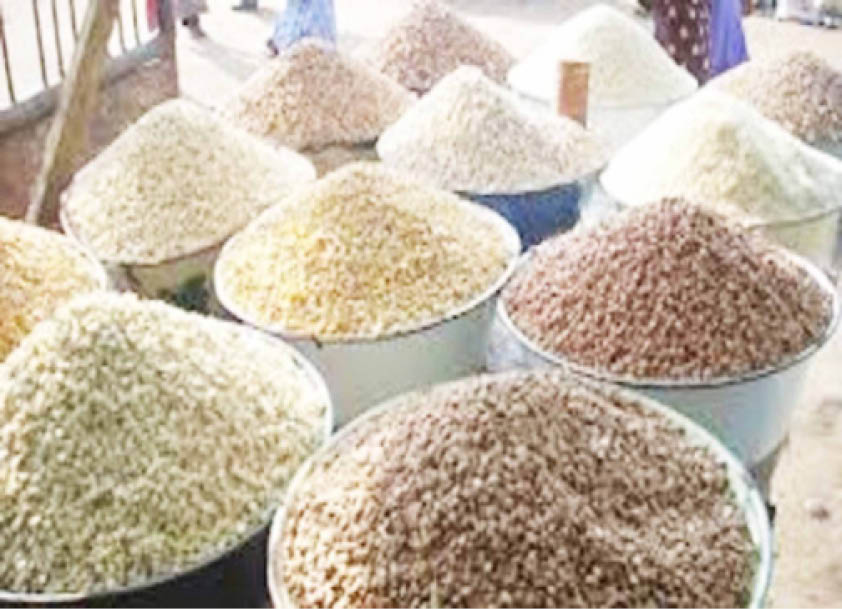Why some Nigerian rice varieties still have stones
The Women Farmers Advancement Network (WOFAN) has disclosed that some varieties of locally produced rice are still full of stones due to lack of advanced machinery and technological know-how among rice farmers. The Executive Director of WOFAN, Hajia Salamatu Garba, who stated this while addressing newsmen after the donation of reapers and threshers to rural […]

Why some Nigerian rice varieties still have stones
The Women Farmers Advancement Network (WOFAN) has disclosed that some varieties of locally produced rice are still full of stones due to lack of advanced machinery and technological know-how among rice farmers.
The Executive Director of WOFAN, Hajia Salamatu Garba, who stated this while addressing newsmen after the donation of reapers and threshers to rural women at Dukpa community in Gwagwalada Area Council, Abuja, noted that using manual methods to cultivate rice should no longer be obtainable.
- #EndSARS: Oluwo Seeks Inclusion Of Traditional Rulers In Panel Of Inquiry
- We’re Reinventing Northern Nigeria’s Rich Heritage- Director, Arewa House
She said she was worried seeing smallholder farmers, especially women who were willing to contribute to food sustainability of the country, going through a lot of stress when cultivating rice and other processes attached.
Hajia Salamatu said the development prompted WOFAN, through its partners like MasterCard, the United States African Development Foundation (USADF) and Competitive African Rice Initiative (CARI), to provide the smallholder farmers with the machines as grants and then engage them in training on how to operate them.
She explained that, “We’re still using that old traditional method of transplanting with hand and harvesting with sickle and then we’ll start beating the rice on the drum, and apart from that, it retains a lot of sand, it is done under dirty environment, and that is the beginning of the story of the Nigerian rice which people run away from.”
Hajia Salamatu added that no fewer than 120 reapers and 120 threshers were distributed to smallholder farmers in the rural areas in seven states: Kano, Jigawa, Kaduna Nasarawa, Benue, Gombe and Adamawa.
